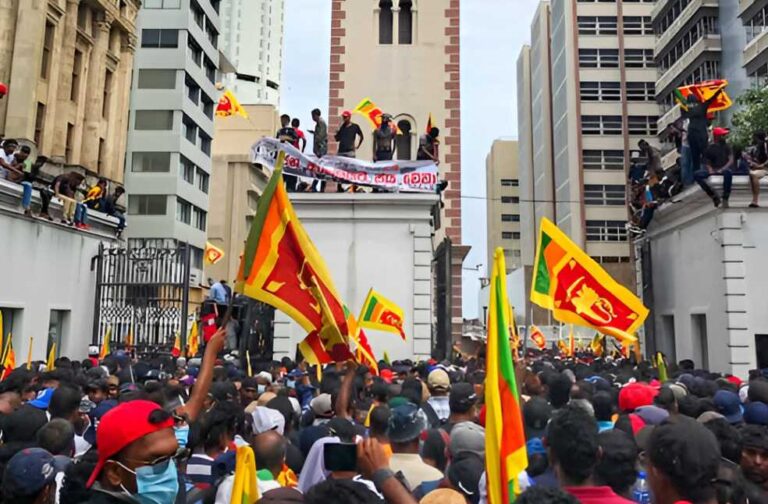Sri Lanka: Sri Lankans have headed to the polls in their debut presidential election since the 2022 mass protests that dropped the government in the wake of the nation’s worst-ever economic crisis.
The vote is being considered a poll on the economic reforms introduced to drive Sri Lanka towards recovery, but the cost of living, inflation, and poverty remain significant issues for the voter.
Financial distress has intensified due to tax lifts and cuts to subsidies and welfare. There were reforms focused on stabilising the economy, but many Sri Lankans are still struggling to meet needs. Soumya Bhowmick, an associate fellow at the Observer Research Foundation stated that, “This election serves as a pivotal moment for shaping Sri Lanka’s recovery path and reshaping both domestic and international confidence in its governance.”
The presidential candidates draw a tight race with four main contenders dominating the campaign: President Ranil Wickremesinghe, leftist politician Anura Kumara Dissanayake, opposition leader Sajith Premadasa, and Namal Rajapaksa, the nephew of former president Gotabaya Rajapaksa.

President Wickremesinghe, 75, was appointed by parliament following the drive out of Gotabaya Rajapaksa. His administration authorised strict measures focused on tackling the country’s economic crisis, which has seen inflation soar to 70% and public debt exceed $83 billion. While the reforms have supported stabilising the economy, Wickremesinghe has gone through severe criticism for his handling of the protest movement and accusations of protecting the Rajapaksa family, allegations he denies.
Anura Kumara Dissanayake, campaigning on an anti-corruption platform, has gained support with his promises of good governance, while Sajith Premadasa represents the opposition Samagi Jana Balawegaya party. Namal Rajapaksa, from a powerful political dynasty, is trying to distance himself from the fallout of his family’s role in the economic collapse.
The economic crisis that triggered the 2022 uprising resulted in years of under-taxation, poor export performance, and policy missteps. Following the effects of the COVID-19 pandemic, the country’s foreign reserves were exhausted, and essentials such as food, cooking gas, and medicine became scarce. Former president Gotabaya Rajapaksa was criticised for the crisis, leading to widespread protests and his eventual resignation.
While Wickremesinghe’s government has since brought down inflation and strengthened the currency, ordinary Sri Lankans continue to face severe challenges. Many, like 32-year-old Yeshan Jayalath, are fighting to find permanent employment despite holding degrees, while small businesses have been devastated. Norbet Fernando, a former tile factory owner, raised his voice regarding skyrocketing costs that have forced him to shut down his business.
Voting closes at 16:00 local time (10:30 GMT), and is being held under reference where voters rank up to three candidates in order of preference. If no candidate wins an outright majority, a second round of counting will begin, taking into consideration second- and third-choice votes.
Analysts believe that no candidate may attain an absolute majority on the first count. Alan Keenan of the International Crisis Group added that candidates and officials should be prepared for potential disputes and a second round of counting. Counting is likely to begin as polls close, with results likely to emerge by Sunday morning.



